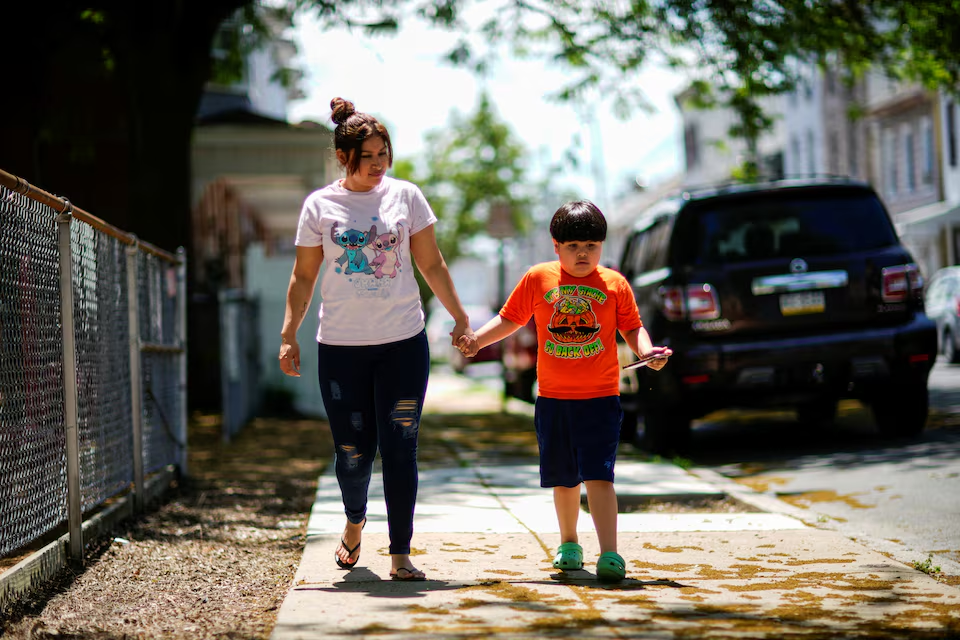The administration of U.S. President Donald Trump has levied multi-million-dollar civil fines against low-income migrants who failed to voluntarily leave the country, reigniting criticism from human rights organizations and immigration advocates. According to documents and legal filings reviewed by Reuters on Tuesday, May 20, 2025, several migrants have been fined as much as $1.8 million each, sparking outrage over what critics call a “punitive and abusive” use of federal power.
The fines stem from enforcement policies introduced during Trump’s first term and now revived in 2025, targeting individuals who defy final deportation orders issued by Immigration and Customs Enforcement (ICE). Under U.S. immigration law, non-citizens who are subject to final removal orders can be fined up to $799 per day for failure to depart.
While rarely used in the past, the Trump administration has now reinstated the aggressive application of the statute, with some migrants receiving notices of fines exceeding one million dollars. Many of the recipients are asylum seekers, single mothers, and long-term residents with few financial resources.
“This is a cruel and calculated policy designed to intimidate and punish the most vulnerable,” said Omar Jadwat, director of the ACLU’s Immigrants’ Rights Project. “These fines are not about deterrence — they are about dehumanization.”
The Department of Homeland Security (DHS) defended the move, stating that the fines are “legal and enforceable” under existing federal regulations and are intended to uphold immigration law and discourage noncompliance.
“Individuals who willfully ignore removal orders are undermining the integrity of our immigration system,” said a DHS spokesperson. “Fines are one of several tools available to encourage compliance.”
But immigration attorneys and advocacy groups say the policy is disproportionately targeting low-income migrants who have no practical means to pay and no immediate legal pathways to regularize their status. In some cases, fines were imposed even when the individual was unable to return to their home country due to conflict, persecution, or lack of travel documents.
The American Immigration Council has filed multiple legal challenges, arguing that the fines violate due process and amount to excessive punishment, particularly for families and individuals protected under temporary protected status (TPS) or those with pending asylum claims.
“We have clients who live paycheck to paycheck now facing penalties larger than the value of their entire lifetime earnings,” said Sophia Medina, an immigration attorney in Texas. “This is government overreach at its most heartless.”
The policy has also drawn international condemnation. The governments of Guatemala, El Salvador, and Honduras have formally protested the fines, citing concerns that the measures violate basic human rights obligations under international law. Several migrant families have already had their bank accounts frozen or received liens against their property following nonpayment of the fines.
Back in Washington, Democratic lawmakers are pushing for legislative action to curb or reverse the fines. Senator Alex Padilla of California called the move “an act of economic warfare against the voiceless,” and pledged to introduce a bill that would eliminate civil penalties for migrants unable to pay due to hardship.
Meanwhile, the Trump administration continues to double down on its hardline immigration stance, touting the fines as part of its broader effort to reassert control over the southern border and reduce the number of undocumented individuals living in the U.S.
The public response remains polarized. Supporters of the policy argue that rule of law must be enforced, while opponents view the fines as another example of Trump’s punitive approach to immigration, which disproportionately affects marginalized communities.
As legal battles unfold, the fate of thousands of migrants remains uncertain — saddled with life-altering debts imposed by a government that, critics argue, is more interested in punishment than policy.
Source; Reuters



